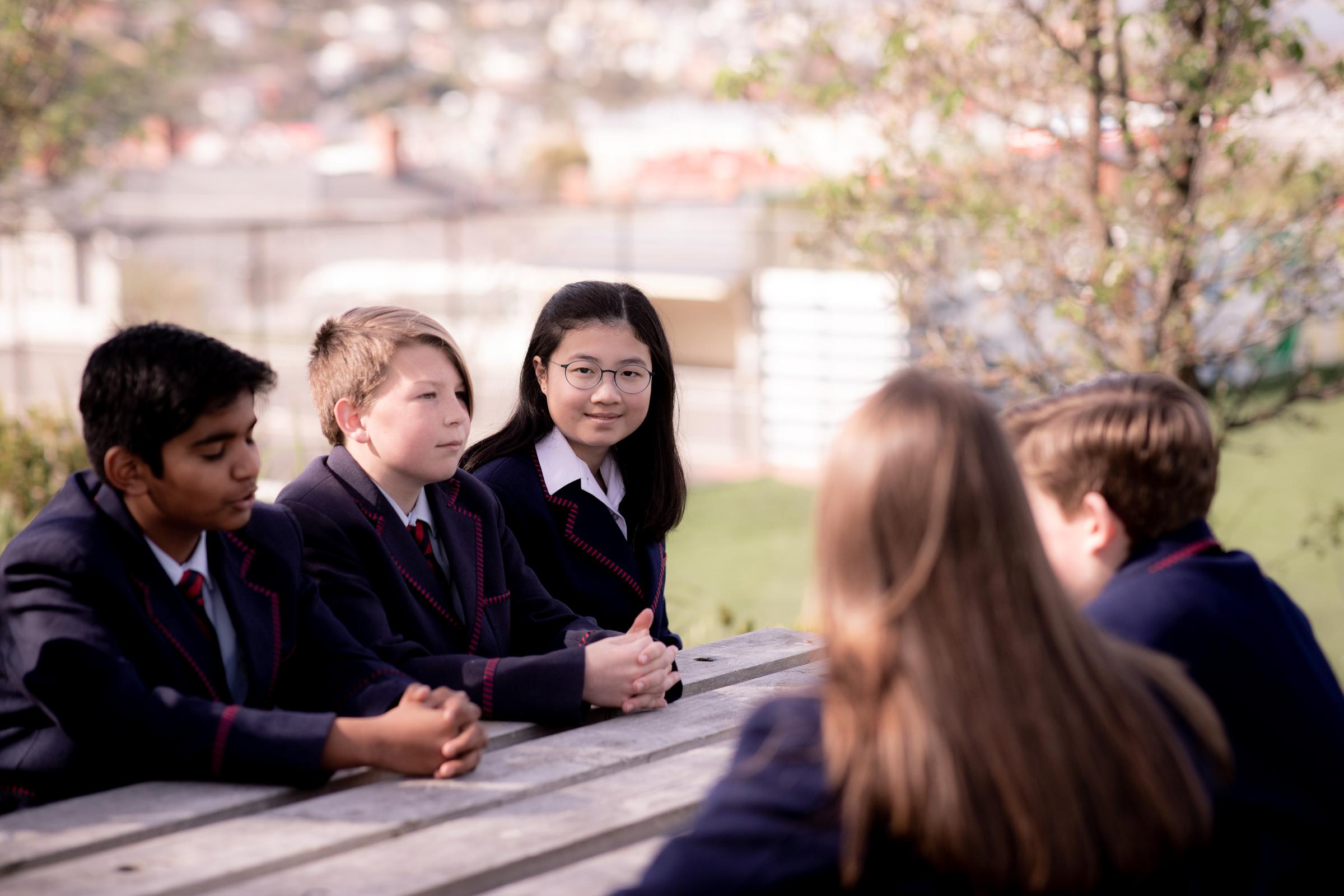Academic Integrity

The Friends’ School policy on academic integrity promotes the principles of honesty, independent thinking and respect for one’s own work and the work of others. It recognises the need for students to understand the meaning and significance of the concepts of authenticity and intellectual property. We believe that all students need to be taught, as an integral part of the learning process across all subject areas and School sections, what it is to show academic integrity. Academic integrity is an important aspect of teaching students information literacy skills and guides students towards producing work that acknowledges the work of others, including work or ideas generated by artificial intelligence,though is not derivative or plagiarised. It is also important for students to understand that not showing integrity and respect for another person’s work is not in keeping with the School’s Purpose and Concerns.
Principles to Support Implementation of this Policy
We believe that:
Academic integrity is a core aspect of information literacy knowledge, skills and understandings
Students, parents/guardians and staff have a responsibility to understand and follow our school policy on academic integrity and relevant guidelines
Teachers across all disciplines are responsible for implementing our school policy and incorporating guidelines into their teaching practice
Developing academic integrity skills and understanding is a shared responsibility across all faculties and sections of the School
Breaking large tasks down into manageable progressions helps students with their information literacy skills and to meet their responsibilities with regards to academic integrity.
Purpose of Academic Integrity K - 12
A student showing academic integrity:
Understands and abides by the School policy and guidelines concerning academic integrity
Submits work that is their own
Meets expectations to demonstrate work in progress through the use of tools such as Google Docs to take notes, organise ideas, and submit plans and drafts of assignments to teachers;
Understands how to collaborate effectively and submit work that is their own, and support their peers to do the same
Completes an honest or agreed share of the work undertaken in group or team work situations
Acknowledges when help is given by others such as parents, private tutors, other students or friends, or when generative AI has been used in any form.
Cites source materials (which may include words, images, music, ideas or content generated by AI) using appropriate referencing conventions
Uses a recognised form of referencing as expected in line with faculty and/or sectional expectations
Abides by all regulations applying to assessment.
Teachers support academic integrity by:
Teaching recognised methods for paraphrasing source material
Giving specific guidelines that encourage students to develop their own ideas through questioning, using inquiry processes, problem solving, comparisons, analysis and synthesis
Teaching students research, summary and note-making techniques
Teaching students to actively re-organise and interpret gathered information and synthesise findings into their own words
Implementing processes to support planning, drafting and showing work in progress
Working in collaboration with the school teacher librarians when relevant, to develop appropriate research and information literacy skills
Teaching students how to cite all sources which may include (but are not exclusive to) books, journals, musical references, images, information generated by AI, internet sites and work or ideas generated by artificial intelligence.
Encouraging the use of citation software such as the SLASA Online Reference Generator or Citemaker
Modelling best academic integrity in their own practices
Referring students and parents/guardians to the School’s policy and guidelines
Parent/Guardian responsibilities with respect to academic integrity
Parents/Guardians support academic integrity by:
Encouraging their children to see the importance of putting significant effort into their learning experiences. They support students with their learning at home by:
Asking questions of the student to provoke their thinking
Working alongside the student to develop a plan of how to approach prioritising tasks and breaking larger tasks into smaller chunks
Helping create an ideal physical environment for learning at home
Communicating with relevant staff any significant absences and/or changes in family circumstances as soon as possible
Working alongside the student when managing larger learning tasks by having a clear idea of major deadlines and planning family engagements accordingly
Giving tips to the student around appropriate self management techniques to support organisation
Encouraging the student to make direct contact with their teacher if there are significant challenges being experienced by the child in completing learning at home
Affirming successes and progress that the student makes with their learning
Providing the necessary materials and resources for students to learn comfortably at home.
School responsibilities with respect to academic integrity
It is the School’s responsibility to:
Embed opportunities within the school curriculum so students develop the habits and skills to support practices that promote academic integrity
Support the development of teachers knowledge, skills and understanding of academic integrity
Communicate our school policy and guidelines relating to academic integrity clearly to students, parents and staff
Treat incidents that could breach our policy and guidelines on academic integrity in a manner appropriate to our School Purpose and Concerns as well as any other relevant external organisation.
